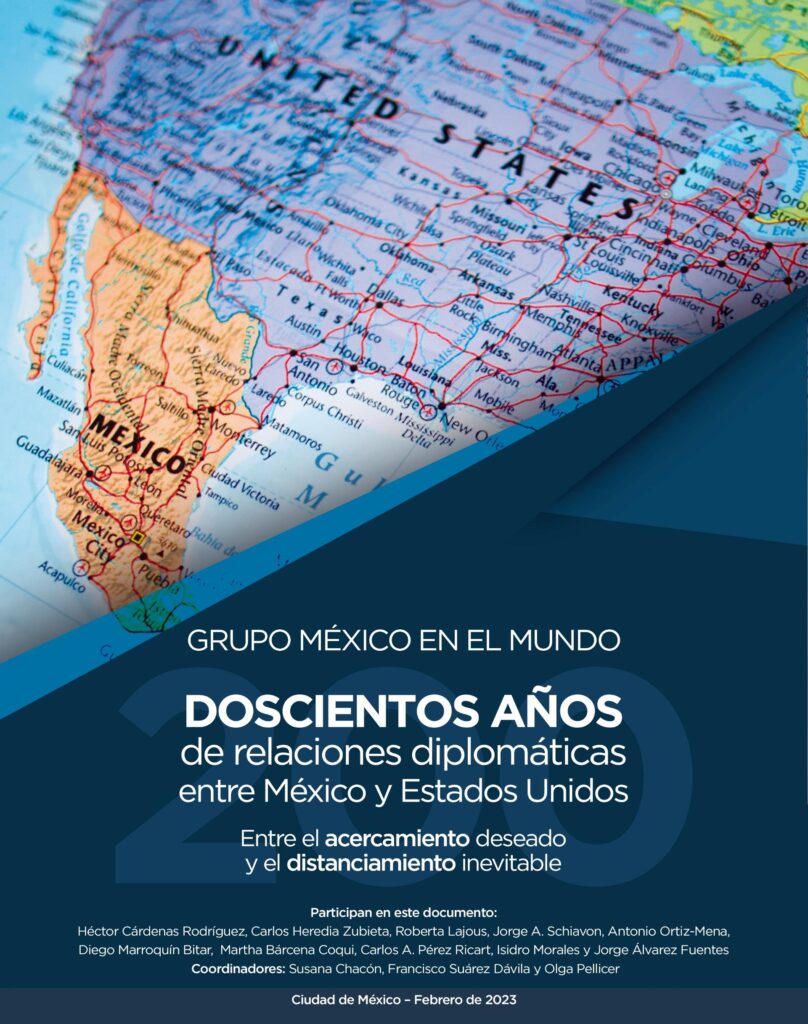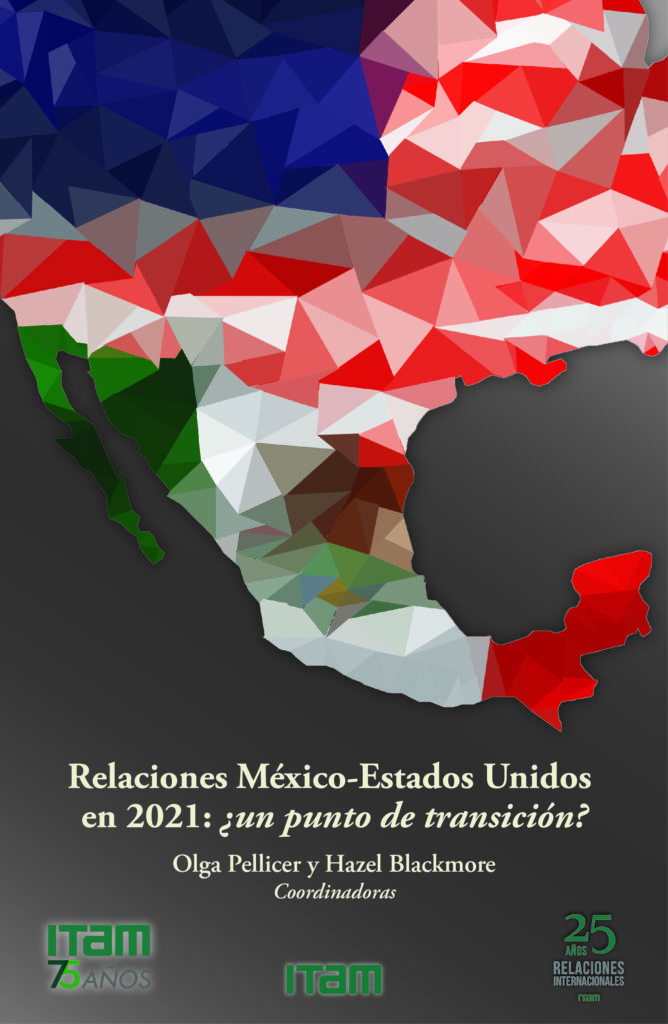An Important Obstacle against Mexican Growth
October 2016
In collaboration with México ¿cómo vamos?
In Latin America, between 2000 and 2015, the Mexican economy was the second slowest in terms of growth, outpacing only that of Venezuela. Mexico needs the United States to grow. This is demonstrated by the fact that regions in Mexico that are fully integrated with North America are growing at rates that Southeast Asia would have envied at its peak. However, one of the largest obstacles to integration is the rise of nativist and racist movements in the United States.
During the Great Depression of the 1930, massive migration of African Americans from southern to northern states triggered a racist reaction that also affected Hispanic migrants. Likewise, the current phenomenon can partially be explained by the 2008 crisis, which has not yet been overcome. This crisis is comparable to that of 1929. Even though it did not derive in another Great Depression or World War, it would be a mistake to think it did not have meaningful repercussions.
Two effects stand out. First, the growing hostility against elites worldwide. Polarization of income, which has accelerated as a result of globalization and the technological revolution that began on the 20th century, has become unpopular as the benefits of both are relatively ubiquitous, whereas the losers are clearly identifiable. In addition, said polarization has grown due to the pronounced economic deceleration that followed the crisis in industrialized countries. Second, searching for scapegoats, populist and isolationist movements have grown stronger. These also have racist and fascist elements in countries such as Germany, Finland, France, Greece, and even, the United States. The latter was not only built by migrants, but it has been their dashing spirit which has imprinted on it an entrepreneurial character. As George Will, the intelligent conservative political scientist, put it, «to migrate is the ultimate form of entrepreneurship».
In order to accelerate its integration with North America, Mexico must take advantage of the natural allies it could count on when it is time to cast votes in the United States. It becomes imperative to support the Mexican migrant communities, to strengthen civic participation -while maintaining a non-partisan approach- and to help them maintain, to some degree, their roots and ties to Mexico. These policies are neither obvious nor easily achievable, but they would make Mexican migrants the country’s first line of defense, as well as a natural lobbying group. This is relevant not only due to human and political aspects, but also for economic reasons.
Donald Trump, as a Republican presidential candidate, has uncovered a Pandora’s box that will echo throughout the upcoming global economic outlook. The integration of the Mexican American community that would enable the support of structures that may promote its social evolution is at risk. It may fall victim to the same factors that have impaired the progress of the African American community, which has not yet achieved full integration more than 150 years after the Emancipation Proclamation, or Thirteenth Amendment, abolished slavery.
As we are reminded by The 13th, an extraordinary documentary by Ava DuVernay, freedom for four million slaves, on which the economy of the southern American states depended, was devastated by the Civil War. This produced an economic challenge that was only solved by «re-enslaving» the African Americans through the criminalization of minor offenses like vagrancy or littering, so that they would provide labor to rebuild the South at practically no cost. DuVernay’s documentary reminds us of the historical importance of The Birth of a Nation, D.W. Griffith’s silent film of 1915, which was the first movie ever to be exhibited in the White House during the administration of President Woodrow Wilson. The film displays the dangerous stereotype of the ignorant negro, potential rapist of white women, and presents the Ku Klux Klan as the good force that can safeguard their integrity.
It is not by chance that, today, Donald Trump uses the same narrative to represent Mexicans as «rapists» and «criminals». Though it is statistically false that Mexican or Hispanic immigrants break the law more than whites or African Americans, the idea gets ingrained. It is alarming that this milieu has resulted in a bliss for racist politicians. Sheriff Joe Arpaio of Arizona, who has detained «suspects» on racial grounds, thus defying the law, received more than 12 million dollars in donations for his campaign (an unusual amount in campaigns for minor office) for re-election, after 24 years in the position.
As occurred in the mid-20th century, when the number of African American prisoners rocketed, poisoning the collective mood against migrants increases political pressure in favor of a «firm hand» that sets mandatory prison terms. Texas Senator Ted Cruz and Pennsylvania Senator Pat Toomey launched the Stop Illegal Reentry Act, a bill to avoid the re-entrance of deported migrants (which fortunately did not pass). The initiative established a mandatory 5-year sentence for deported migrants found guilty of any crime who would attempt illegal reentry, and for migrants who, having been deported twice, tried to reenter.
Worryingly, a country that has 5% of the world population keeps in jail one in every four prison inmates worldwide, contributing to the development of the private prison industry. This industry aggressively lobbies in favor of hardening laws that may provide them with an increasing population of «clients». Estimations put the annual cost for an inmate at an average of $31,286 dollars. In New York State, the average cost is $60,000 dollars. There are powerful economic motivations to foster this nonsense. Such a punitive system benefits corporations like the Corrections Corporation of America, based in Nashville, Tennessee, or the GEO Group conglomerate, of Boca Raton, Florida. Both corporations accrue annual revenues of a billion dollars by managing jailing facilities.
The proposed legislation replicates against Hispanics the asymmetrical and excessive punishments that have plagued black minorities in the United States for decades. For example, the penalty for crack possession is 100 times that of cocaine possession. The first is typical of African American populations; the latter is a white man’s drug. Excessive incarceration of African American men, which may extend to Hispanics, has had a devastating effect in social mobility and family structure. More than 72% of births of African American children come from single women and two thirds of African American children live in single-parent homes (42% for Hispanics and 25% for whites). Whole generations are politically under-represented. Approximately 1.4 million African Americans do not have the right to vote because they were imprisoned. Nine states impose such penalty for life. Such is the case of Alabama, Florida, Mississippi and Virginia, where roughly 30% of African American men have forfeited their right to vote.
In the years to come, there will be an adaptation to a decelerating world economy and to an Industrial Revolution that, in the short term, will cause many non-qualified workers to be displaced from traditional jobs. Immigrants, especially Mexicans («thanks» to Donald Trump) will suffer racist attacks. It will become increasingly important for governments like Mexico to support their citizens and increase representation to levels in proportion with the size of its population, as to become an effective counterweight.
For the past 20 years, the Mexican economy has been in a continuing process of integration with Canada and the United States. Its future depends on accelerating said process, on underpinning a full migratory reform that opens temporal legal migration for workers of the three countries, on increasing investment in logistics and infrastructure, on taking advantage of the dynamism of the economy, on building a better rule of law, and even, on becoming the bridge that integrates Central American economies to regional progress. The social and political dynamics in the United States pose a threat. The failed candidacy of a populist was a warning that must be kept in mind. The status quo is unsustainable. The option is to move forward on strengthening regional integration, or else, to run the risk of a regression that may set on permanently.
JORGE SUÁREZ-VÉLEZ is an Economist from Instituto Tecnológico Autónomo de México (ITAM) and the autor of La próxima gran caída de la economía mundial and Ahora o nunca, la gran oportunidad de México para crecer. Follow him on Twitter at @jorgesuarezv.













